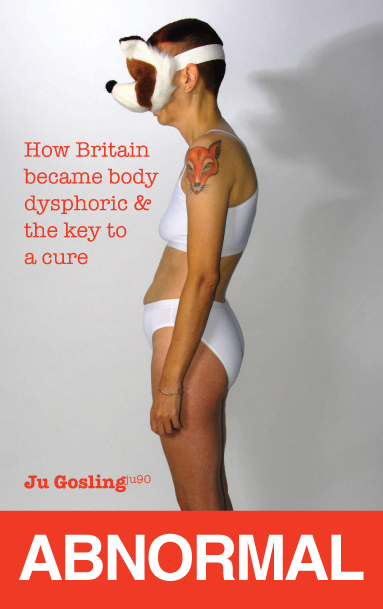
|
On (not) returning to working as normal I don’t miss the business visitors on their work-related missions, whether health, social care or my own. The need to tidy, the intrusion, the lack of privacy. On Instagram, you can choose what you share. I don’t miss the parking problems. The constant hassle. The inflexible, incomprehensible different postcode systems. The weekly near misses in the street. The struggle to find anyone who wanted to work as my driver. The bodywork repairs. The physical effort of getting my wheelchair in and out of the van. The total lack of provision for wheelchair users in one of the world’s leading capital cities. At home, I can park my laptop wherever I want. I don’t miss the taxis, whether they came or, like so many, never turned up however long ahead they were booked. The constant refusals to take a dog, a wheelchair, and (unspoken) a lesbian. The being dumped at will in the middle of oncoming traffic. The distress of my assistants, as a driver yet again failed to wear a seatbelt. The time-consuming, draining, constant engagement with complaints processes. At home, I can get myself around. I don’t miss the security alerts. The not so distant sirens. The searching for news. The hunt for a safe way home when no one knows where danger lies. Online, the only threats are cyber ones. I don’t miss the travelling. The trains that claim to be accessible but are anything but. The assistance that’s only special because it’s so poor. The airlines that don’t want me on board. At home, I can meet anywhere in the world in comfort. I don’t miss losing time, hours of it, week after week, sitting in traffic or waiting to park. The days in bed recovering. The energy wasted. The years flashing past while people claimed it was impossible to use Skype instead. At home, logging on only takes seconds. I don’t miss the struggle just to get into a building. The side entrances and gates that were always locked. The puddles and cigarette butts by the back doors. The lifts that never worked, or were too small, or both. The lack of bells and intercoms whenever the way was barred. At home, I just switch on my laptop. I don’t miss the tortuous routes through parts of the building that others never see, often led by an uncertain guide. Arriving at the building first, but always getting into the meeting too late for introductions. On Zoom, you can see everyone’s name, without needing to explain that you can’t recognise faces. I don’t miss the narrow corridors. The heavy doors. The ‘accessible steps’. The toilets described without irony as disabled. I don’t miss the rooms filled with huge tables, with no space to move around them. The lack of fire escapes, the anxiety. On Zoom, Rooms have no furniture. I don’t miss the condescension, the patronising attitudes, the rudeness. On Zoom, no one can judge you by your wheelchair; we are all of us Venus de Milo. I don’t miss the struggle to hear. The lack of amplification. The people determined to ignore the mic, because they ‘have a loud voice’ and think I’d prefer to be shouted at. Online, I can always turn them up - or off. I don’t miss the struggle to eat, with the same three forbidden ingredients in every available option. The struggle to find calories, when fruit replaced carbs at every provided meal. At home, should I choose to do so, I can order cuisine from anywhere in the world, cooked in a warehouse and delivered within an hour. I don’t miss the networking sessions. Trapped unseen on the edge of the room, or isolated in the centre of a cordon sanitaire. Online, I can meet people from all over the world, and chat with whoever I want. I don’t miss the inaccessible award-winning venues. The claustrophobic toilets, the impossible lifts, the segregated seating, the out of reach bars. The endurance test live events. The intolerable stress on my PAs. The emails from Arts Council-funded CEOs defending their bad practice. At home, Youtube is accessible from my TV, and with captions. I don’t miss the clouds of smoke on the wheelchair ramps that seized at my lungs and lingered in my hair. The bums in my face. The strangers leaning on my wheelchair. The ‘just a cold’ that always meant three weeks off sick for me. Online, I can only smell myself. I don’t miss the muddy pathways, the trip hazards, the filthy toilets, the poor stewarding, the unsafe fencing. The constant surprise from event organisers at British weather. The unjustified awards as ticket-holders left weeping. Watching a livestream, I don’t even need to find a viewing platform. I don’t miss the touching. Patting me at will along with my assistance dog, stroking our hair regardless of our snarls. Both of us knowing that if we respond further, it’s us who’ll be in trouble, and for one of us, that could mean death. Online, no one can pet us, while the studio cats pose permanently out of reach of their audience. I don’t miss the abuse, the continual micro-aggressions in the street. The stereotyping, the judging, the threats, the insults. The total lack of empathy from officials. At home, I can switch my phone off. But sometimes, behind the glass, on the other side of the window, we are not waving, but drowning. © Ju Gosling aka ju90 |
| Dr Ju Gosling aka ju90's ABNORMAL: How Britain became body dysphoric and the key to a cure is available now for just £3.09 for the Kindle or in a limited-edition hardback with full-colour art plates for £20 inc UK postage and packing. |  |